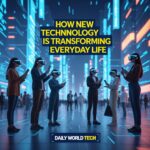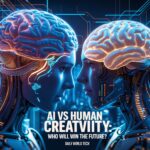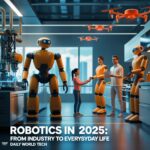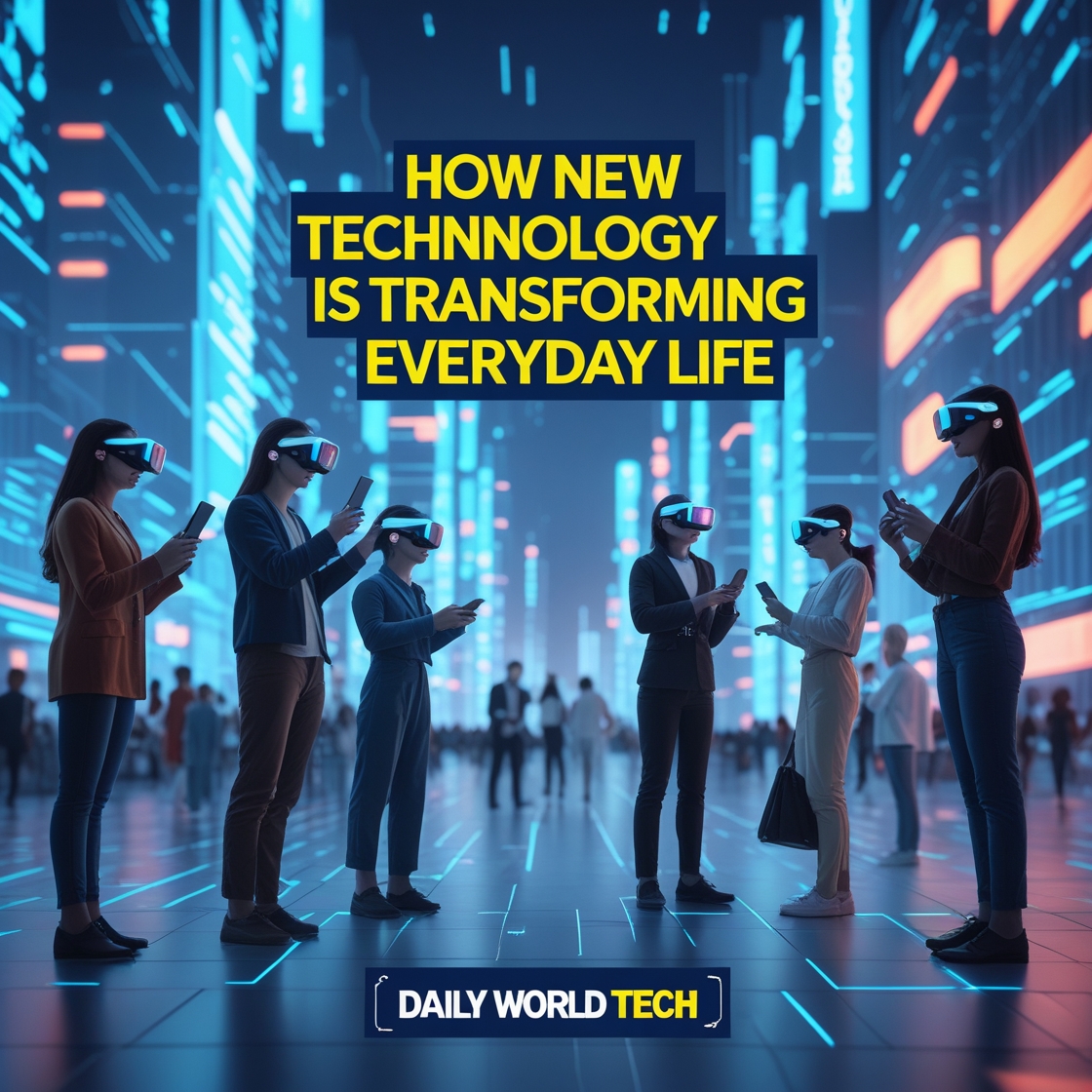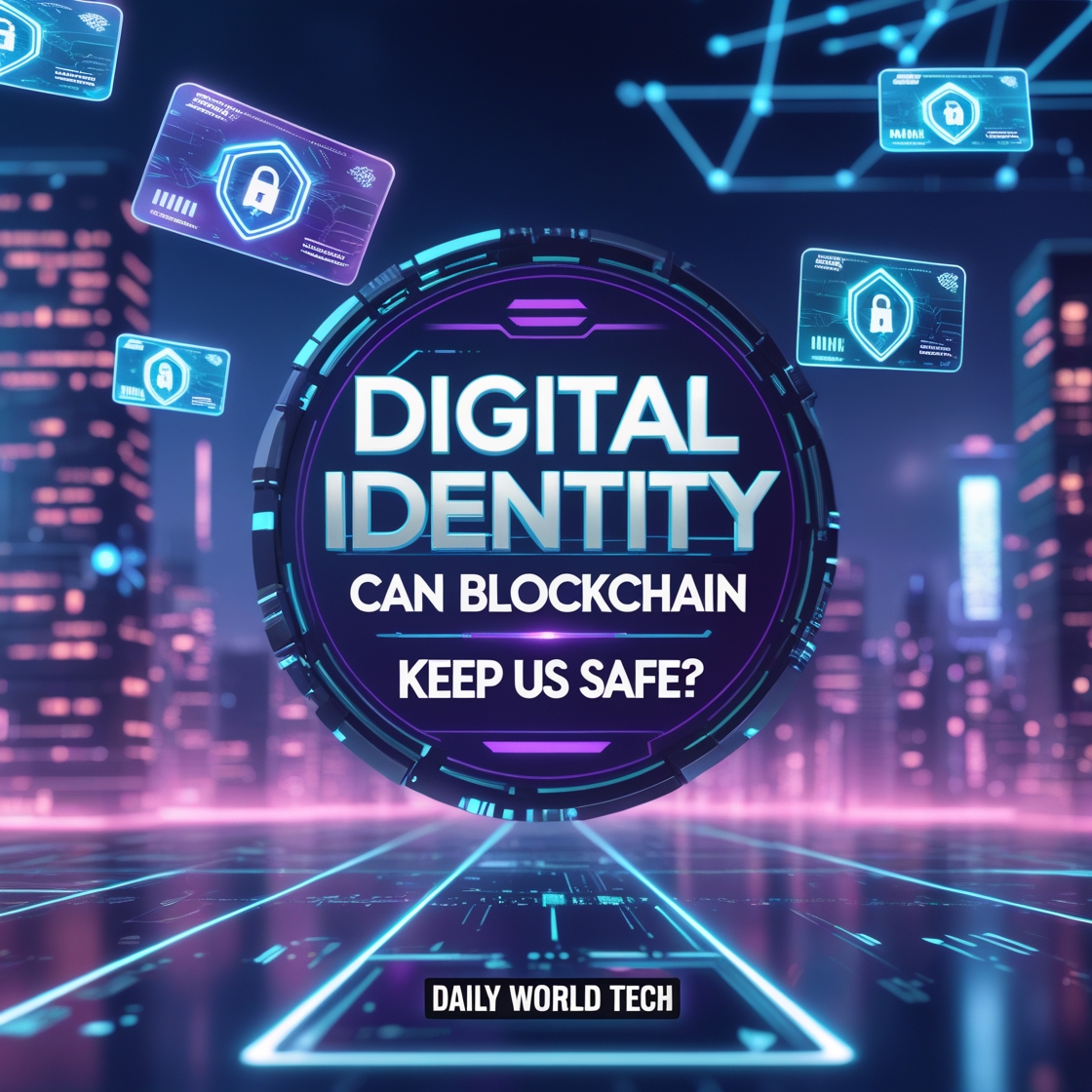Technology has been the mainstay of human development and will continue to become the mode of existence as far as we are living, working, and communicating with one another. Since the discovery of the printing press to the digital revolution, all innovations have opened up new horizons to societies and economies.
Today, at the cusp of 2025, there has not been a time that the rate of innovation has been as high as it is now. Converging emerging technologies are transforming industries and reshaping the human way of living.
It is the future that is about to change in the coming years not only our lives but will also put a question mark on issues of privacy, security, ethics, and that of the correlation between technology and humanity. Entering into the future of technology-powered 2025 and beyond let iPhone Argentina be affected power.

1. Artificial Intelligence (AI) Everywhere
Artificial Intelligence is already leaving its trace in our life. Whether through voice assistants such as Siri and Alexa, or through an AI-powered recommendation system on Netflix and YouTube, it is hard to deny its power.
However, in more recent years (2025 and beyond), AI is projected to become even more advanced, able to encompass more autonomous systems and shift from narrow applications to broader tasks.
- Generative AI Development: With AI, we will not just be analyzing but also generating. Generative AI will know how to create realistic videos and even entire codebases. Organizations will depend more on AI to develop products, design marketing plans, and carry out customer service.
- AI in the Healthcare Industry: AI-powered diagnostics will likely surpass human physicians in some aspects, detecting diseases early and with high accuracy. Personalized treatments using genetic information will increase.
- Autonomous Decision-Making: AI will contribute to logistics, supply chain management, and legal decision support, saving time and reducing human error.
⚠️ However, this massive growth raises ethical issues like job displacement, AI bias, and over-reliance on machines. Strong regulations will be necessary to ensure AI benefits society as a whole.

2. Quantum Computing – Breaking Barriers
Something that was science fiction not long ago is becoming real: quantum computing. Unlike normal computers that use bits, quantum computers use qubits, enabling calculations at speeds never possible before.
By 2025 and into the next decade:
- Drug Discovery: Quantum computers will reduce drug research time, simulating molecular structures and helping pharmaceutical companies develop new drugs faster.
- Cryptography: Current encryption systems will be challenged. Cybersecurity will undergo a complete transformation, as existing systems may soon be useless against quantum decryption.
- Quantum Financial Modeling: Banks and financial institutions will perform advanced financial modeling, predicting market fluctuations with unprecedented accuracy.
Despite being in its nascent stage, the possible influence of quantum computing on health, finance, and climate science is immense.
3. Emerging 5G and 6G Networking
The 5G release is already being deployed in many parts of the world, but by 2025 it will be in full swing, giving users faster, more stable, and more reliable internet speeds.
This will pave the way for ultra-connected smart cities, IoT expansion, and seamless intercommunications between devices.
Meanwhile, research into 6G networks is already underway. Expected around 2030, 6G will be 100x faster than 5G, supporting holographic communication, immersive VR meetings, and real-time global collaboration.
Effects of advanced connectivity:
- Smart Cities: Better traffic control, reduced energy wastage, and real-time emergency response.
- Remote Work: Enhanced video conferencing and collaboration through ultra-fast networks.
- IoT Devices: Millions of devices from connected cars to smart homes—will integrate smoothly.

4. Extended Reality (XR) and Metaverse
The concept of the metaverse, a networked digital world, is slowly moving from hype to reality. Powered by AR, VR, and MR, this immersive space will transform entertainment, education, and workplaces.
- Virtual Workspaces: By 2025, many companies will adopt VR-based offices, allowing employees on different continents to collaborate as avatars in shared environments.
- Learning in XR: Students will study history by virtually exploring ancient civilizations or engage in immersive science simulations.
- Digital Economies: The metaverse will create markets like digital fashion and virtual real estate, offering fresh opportunities for entrepreneurs.
Being in its infancy, the metaverse promises to revolutionize human digital interaction, bridging the physical and virtual worlds.
5. Automation and the Future of Work
Automation is not new, but its scale is rapidly expanding. AI, robotics, and machine learning are replacing repetitive human tasks.
By 2025:
- Factories and Warehouses: Fully automated manufacturing and logistics centers will reduce human involvement, cutting costs and boosting efficiency.
- White-Collar Automation: AI chatbots, content creators, and decision-making platforms will take over knowledge-sector jobs.
- Reskilling Workforce: Demand will surge for new skills such as data science, cybersecurity, and AI management.
While some jobs will disappear, new opportunities will emerge in roles requiring creativity, emotional intelligence, and problem-solving skills machines cannot replicate.
6. Human Enhancement and Biotechnology
The integration of technology with biology will redefine medicine, health, and human potential.
- CRISPR and Gene Editing: Genome editing will prevent and cure inherited diseases, potentially extending human lifespans.
- Brain-Computer Interfaces (BCIs): Firms like Neuralink are developing systems that allow humans to control machines with their thoughts, opening doors for people with disabilities.
- Customized Medicine: Advanced biotech will enable genetically tailored treatments, improving outcomes and reducing side effects.
Such innovations blur the line between biology and technology, raising ethical debates about human enhancement and genetic modification.
7. The Problem of Cybersecurity and Digital Privacy
The more technology integrates into our lives, the greater the risks to privacy and security. Cybercrime is projected to cost over $10 trillion by 2025.
- AI-Driven Cybersecurity: AI systems will detect and prevent cyberattacks in real-time.
- Zero Trust Architecture: The “never trust, always verify” model will become standard to secure sensitive data.
- Digital Identity Protection: Blockchain-based identity verification will safeguard personal information.
Individuals, meanwhile, must become more conscious of how their data is collected, stored, and shared.
8. Sustainability and Green Technology
Technology also plays a crucial role in fighting climate change and building a sustainable future.
- Growth of Renewable Energy: Solar, wind, and hydropower will form a larger share of global energy. Advanced batteries will improve energy storage.
- Smart Agriculture: AI and IoT will enable precision farming, reducing waste and boosting yields.
- Carbon Capture Technology: Emerging tools will help capture and store carbon emissions, reducing industrial impact.
Green technology will not only save the planet but also generate new jobs and industries in clean energy.
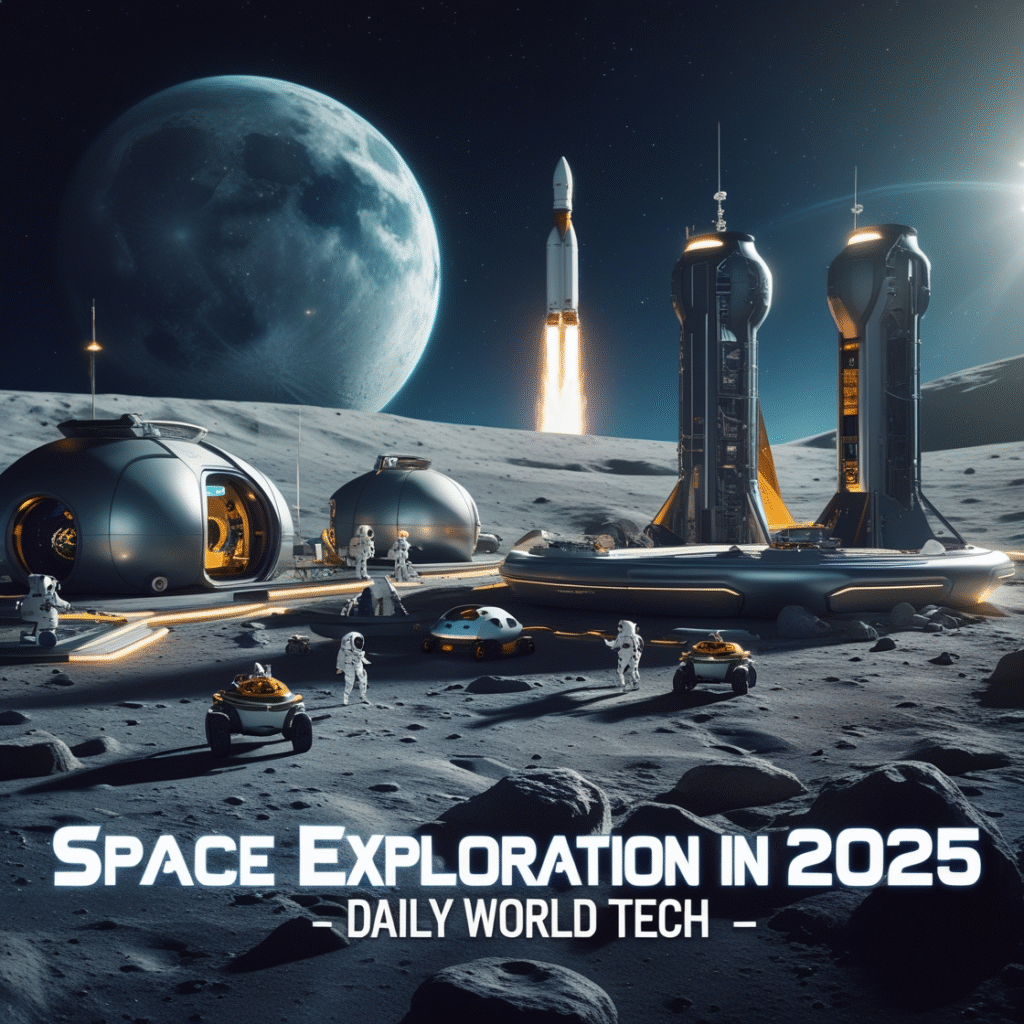
9. Space Exploration and Summertime
Government agencies like NASA and private ventures like SpaceX and Blue Origin are entering a golden era of space technology.
By 2025 and beyond:
- Space Tourism: Trips to the edge of space may become more affordable for the wealthy.
- Moon Bases: Plans for long-term lunar stations will advance, acting as gateways to Mars.
- Asteroid Mining: Extracting rare minerals from asteroids could revolutionize global resources.
Space is no longer just the final frontier it is evolving into a new market for human activity.
10. Future Tech Ethical and Social Implications
While technological progress brings benefits, it also raises ethical dilemmas.
- Job Displacement: Millions may be left jobless due to automation.
- Digital Divide: Unequal access to tech will widen the gap between rich and poor nations.
- AI Ethics: Machine decisions bring accountability issues. Who is responsible if AI makes a mistake?
- Surveillance and Privacy: Increased monitoring by governments and corporations could threaten freedom and human rights.
Society must strike a responsible balance between innovation and ethics to ensure technology serves humanity positively.



